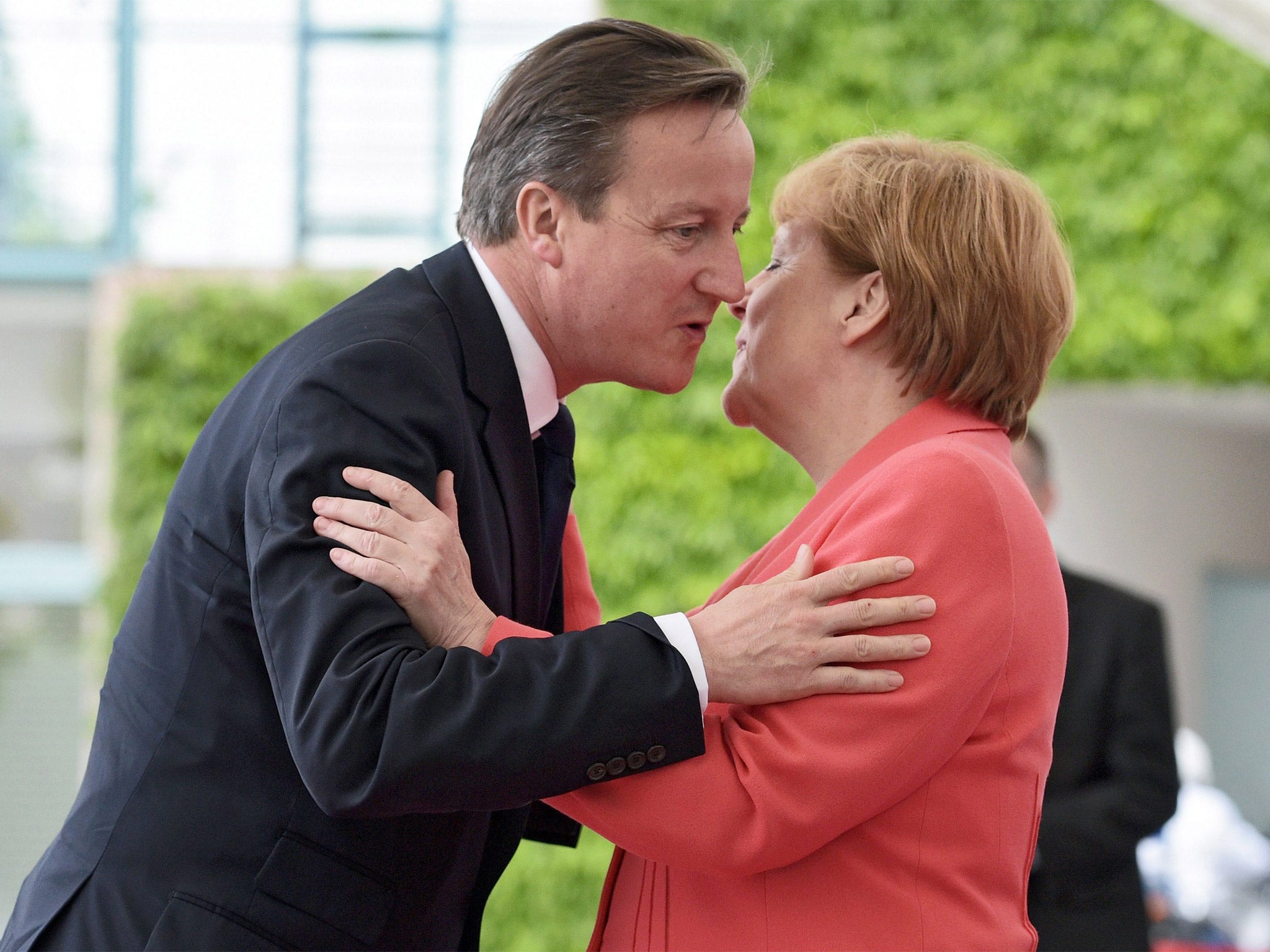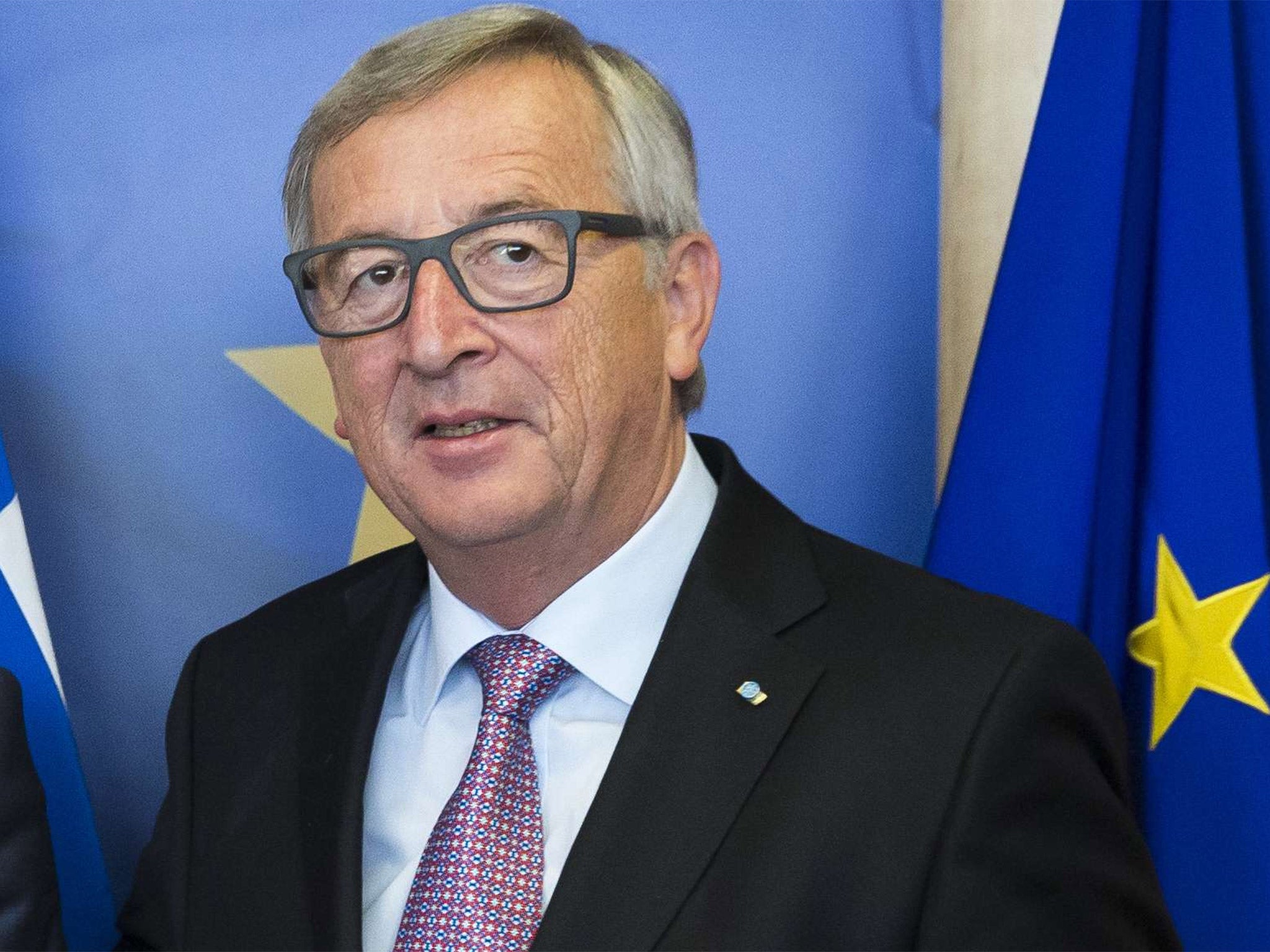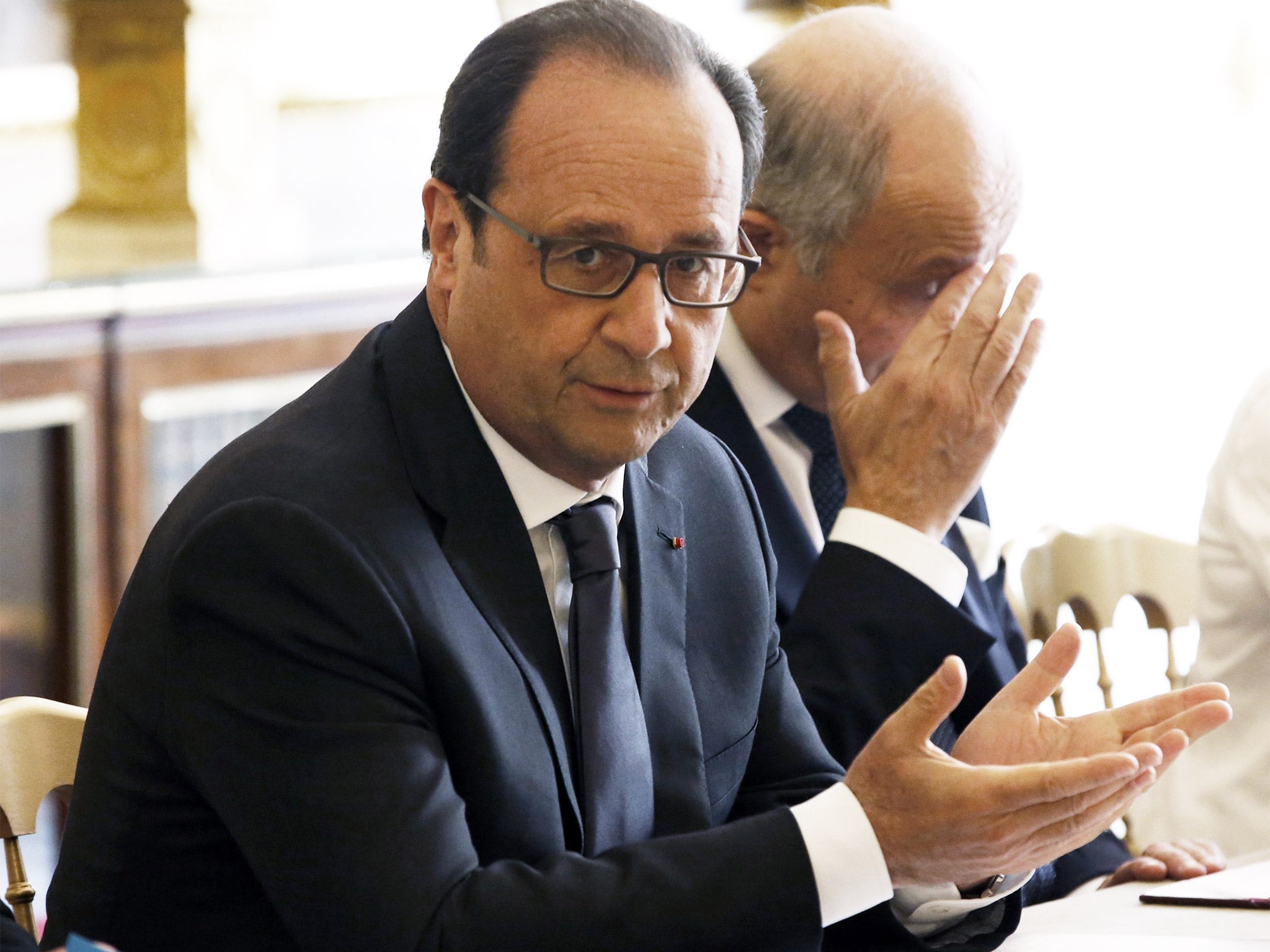David Cameron struck double blow in his hopes to win Britain a new EU deal
PM scales down summit ambitions in face of opposition from France and President Juncker

Your support helps us to tell the story
From reproductive rights to climate change to Big Tech, The Independent is on the ground when the story is developing. Whether it's investigating the financials of Elon Musk's pro-Trump PAC or producing our latest documentary, 'The A Word', which shines a light on the American women fighting for reproductive rights, we know how important it is to parse out the facts from the messaging.
At such a critical moment in US history, we need reporters on the ground. Your donation allows us to keep sending journalists to speak to both sides of the story.
The Independent is trusted by Americans across the entire political spectrum. And unlike many other quality news outlets, we choose not to lock Americans out of our reporting and analysis with paywalls. We believe quality journalism should be available to everyone, paid for by those who can afford it.
Your support makes all the difference.David Cameron’s hopes of winning a new deal for Britain in the European Union have suffered a double setback as he prepares to outline his proposals to fellow EU leaders at a summit today. EU diplomats predicted that France would prove a major stumbling block to the Prime Minister’s demands and would not join Germany in “going the extra mile” to keep Britain in the 28-member EU club.
Mr Cameron’s chances of winning the support of the European Commission also appeared to recede when Jean-Claude Juncker, its President, sidelined senior British officials in a reshuffle of the top jobs in Brussels.
It was seen as a sign that Mr Juncker has not forgiven Mr Cameron for his high-profile attempt to block his candidacy last year, which ended in a defeat for Britain.
In a further blow to the Prime Minister, his opening shot on EU treaty negotiation will be overshadowed by two more immediate crises: the threat of Greece’s being forced out of the euro and the thousands of migrants arriving in Europe from Africa.

Both topics are likely to dominate the agenda of the two-day Brussels summit.
Speaking in advance, Mr Cameron said the talks “will take us another step closer to addressing the concerns that the British people have about the EU. And closer to changing the status quo for the better and then giving the British people a say on whether the UK should stay in or leave the EU.” The summit is expected to agree that officials will start work immediately in the four key areas in which the UK is seeking reform.
They are: sovereignty (exempting the UK from the EU’s commitment to “ever closer union” and boosting the role of national parliaments); safeguarding the position of the nine EU states including the UK which are not in the eurozone; curbing the rights of EU migrants to draw state benefits; and ensuring the EU is a source of economic growth, not stagnation.
However, Mr Cameron will not table specific proposals today for fear that he would not achieve them all, which would allow Eurosceptics to dismiss his new deal in the referendum he will call by 2017.
His “broad brush” approach will be discussed over a working dinner in Brussels. UK officials insisted that the other 27 EU leaders, most of whom have held one-to-one talks with Mr Cameron ahead of the summit, had shown they were willing to engage, but stopped short of claiming they all backed the British proposals.

On Wednesday Mr Cameron continued his offensive at a meeting with Angela Merkel, the German Chancellor, in Berlin. His proposed benefit curbs on EU migrants have already run into strong opposition from Eastern European countries, led by Poland. In Brussels, diplomats predicted that François Hollande, France’s Socialist President, would play hardball. “There is a lot of concern about what Hollande will do,” one said.
Mr Cameron sat and listened as the Queen issued an unexpected plea for European unity at a state banquet in Berlin. In what some interpreted as a political intervention, she said she and the German President, Joachim Gauck, had seen “the worst but also the best of our continent” during their lives. “We know that division in Europe is dangerous and that we must guard against it,” the Queen said.
However, Emmanuel Macron, France’s Economy Minister, said Britain could not be allowed to create a “Europe à la carte.” He told the BBC: “I don’t understand how it is possible to say, ‘We the UK have all the positive aspects of Europe but don’t want to share any of the risk with any member states.’ It just doesn’t fly. It’s a common responsibility.” He also ruled out changes to the EU’s governing treaty, which some of the British demands may require.
Mr Juncker announced a shake-up of the Commission after Catherine Day, an Irish official, decided to retire as Secretary-General in September. The reshuffle left the two most senior British figures in charge of enterprise and taxation, while another was demoted to innovation.
Jonathan Faull, a UK official who was considered a contender for Ms Day’s job, will instead take charge of a task force “for strategic issues relating to the UK referendum”, reporting to Mr Juncker. Brussels insiders said “the Brits have been seriously sidelined”. Mr Cameron had hoped to strike deals with the 27 other national leaders to limit the role of the Commission.
Cameron's priorities: Key Demands
Sovereignty: to exempt the UK from the EU’s commitment to “ever closer union” and boost the role of national parliaments.
Chances of success: some progress likely. UK could be exempt from EU’s commitment to “ever closer union.” British MPs may be able to block EU laws if agreement reached with l other national parliaments but will not get sole veto.
Euro: to safeguard the rights of the nine EU states, including the UK, which are not in the eurozone.
Chances of success: reasonable. A form of words expected to be agreed. Britain not isolated.
Immigration: to curb the rights of EU migrants to claim state benefits. Chances of success: tricky. Could be major sticking point, especially on proposed four-year wait for tax credits.
Growth: To cut EU red tape and ensure it boosts economic growth. Chances of success: good. Seven other EU nations are already backing UK plans to deepen single market on digital services.
Join our commenting forum
Join thought-provoking conversations, follow other Independent readers and see their replies
Comments